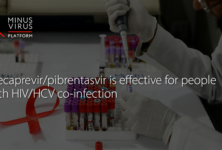Who has hepatitis? Well, that’s a good question. We know that some groups are more likely to acquire HCV infection than others. But, unfortunately, most people who have the virus have not yet been diagnosed.
November 2016 marks the fourth European Testing Week – and the second to include hepatitis. It is now well known that the hepatitis C virus (HCV) is a major cause of mortality and is an economic burden on national healthcare systems. As many as 15 million Europeans may be infected with HCV.
This year the World Health Organization published its first Global Health Sector Strategy on viral hepatitis and a European Hepatitis Action Plan followed shortly thereafter in an attempt to set out to curb this epidemic. At the same time, biomedical advances over the last years make a future without HCV possible. This future requires, however, that a significantly greater proportion of those infected with HCV be tested and diagnosed. Current evidence, though scant, consistently suggests that undiagnosed HCV is widespread, and thus is a considerable obstacle to HCV elimination strategies.
So what can we do about this situation? Well, last year some 400 organisations participated in the HIV-Hepatitis Testing Week, and 141 carried out activities specifically on hepatitis. This year we hope for more organisations to be involved, and more tests to be carried out. And not just more tests, but the right people should be tested.
We know from our experience with HIV that some countries, Russia for example, test millions of people but find few cases. That’s why testing needs to be targeted. While anyone may have hepatitis, there are well-known risk groups, which include people who have injected drugs in the past or do so now, as well as men who have sex with men. The issue is so acute in the drug injecting community that there is a major scientific network addressing the issue, as I wrote about earlier.
To eliminate hepatitis, a lofty goal WHO set in its global strategy, first we need to know how many people living with HCV have not yet been tested and diagnosed. Research on this topic is limited, but those studies that we do have give us important insight. In some countries, the number of undiagnosed individuals is as high as 50%.
It is very important that more studies be carried out so that we can figure out who these undiagnosed people are and how we can deliver targeted testing and treatment to them. To that end, new prevalence studies from the ECDC and research groups across Europe are very welcome. With 500 groups now signed up, let this European Testing Week serve as a call for action on the ground and for more research.
By Jeffrey Lazarus


 ПОИСК ПО САЙТУ
ПОИСК ПО САЙТУ  поиск по ресурсному центру
поиск по ресурсному центру 



